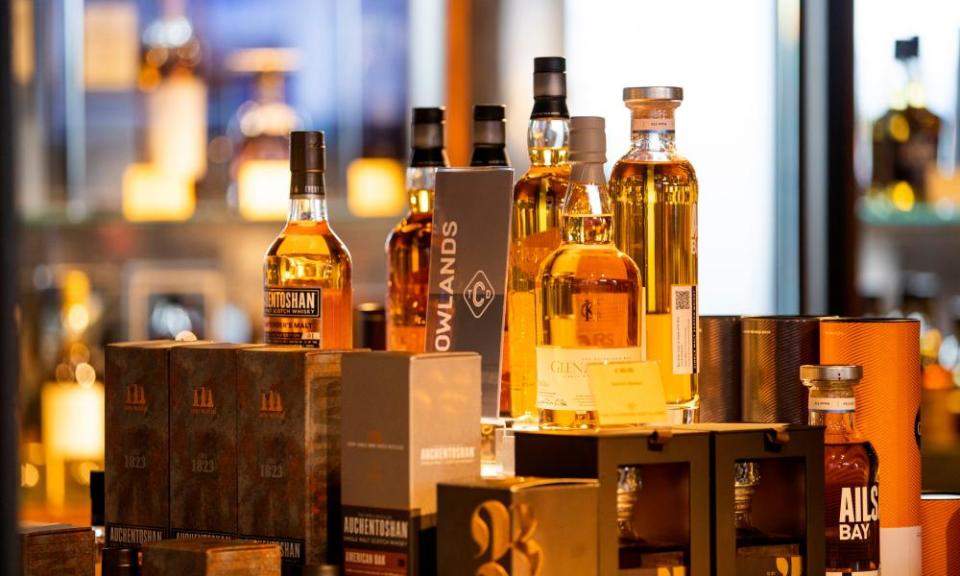UK manufacturers braced for financial hit as US tariffs bite

British manufacturers of products ranging from Scotch whisky to biscuits and Savile Row suits are braced for a significant financial hit after US tariffs came into effect in retaliation for subsidies given to aerospace manufacturer Airbus.
Tariffs of 25% came into effect at midnight on the US east coast (5am BST), damaging small businesses with few links to a 15-year aerospace industry battle between Airbus, the European champion, and American rival Boeing.
A broad variety of products across the EU have been hit by the tariffs, including French wine, Italian parmesan and Spanish olives.
Small British manufacturers with little interest in the rivalry between two of the world’s largest companies expressed consternation at being dragged into the row. “It feels exceptionally odd that we’re caught up in a dispute about aircraft,” said Simon Cotton, chief executive of Johnstons of Elgin, a Scottish manufacturer of cashmere woollen knitwear.
He said the Moray company, which employs more than 700 people, will now have to reassess whether to continue to target sales growth in the US market, after seeing sales grow by 40% last year.
The disadvantage for Johnstons will be compounded because rival cashmere producers in Italy – another centre for high-quality cashmere clothing – will not be affected by the tariffs. Some British cashmere products will face total US tariffs of more than 40%, according to the UK Fashion & Textile Association.
Liz Truss, the international trade secretary, on Thursday said the government had urged Donald Trump’s administration to drop the tariffs, after meeting British manufacturers. “The UK has complied fully with the WTO’s ruling on the Airbus dispute and we do not believe our industries should be subject to tariffs,” she said.
The US announced the imposition of the tariffs on 3 October, after the World Trade Organization (WTO) ruled that EU nations gave illegal state aid to Airbus for the development of its A380 superjumbo jet and the smaller A350.
The WTO is also preparing to rule in the first half of 2020 on what tariffs the EU can impose in retaliation to separate US state aid given to Boeing. Commercial aircraft from Germany, Spain, France and the UK – the major manufacturing locations for Airbus – will be subject to US tariffs of 10%.
“The only way to avoid the negative effects of the tariffs is for the US and EU to find a negotiated settlement,” said a spokesman for Airbus. “We are working with all our customers to try to mitigate the impact by all possible means.”
The Scotch Whisky Association (SWA) calculated that whisky products – long feted as one of the UK’s most impressive export stories – will be hit by more than 60% of the UK’s total tariff bill.
Karen Betts, SWA chief executive, said: “Alongside American whiskey companies, we have called on the UK, US and EU governments for many months now to find a negotiated solution to the trade disputes that have given rise to these tit-for-tat tariffs, and to ensure that duty-free trade can resume between the UK and the US to the benefit of whisky producers, their employees, the communities we work in, and consumers everywhere.”

 Yahoo Finance
Yahoo Finance 